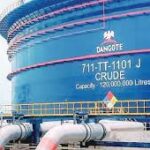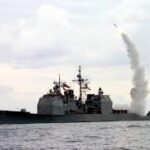Tensions between Israel and Iran have escalated dramatically, with Israel launching airstrikes on multiple nuclear sites across Iran, while Iranian missile attacks overnight struck a hospital in southern Israel, injuring dozens.
One of the most serious incidents occurred at Soroka Medical Centre in Beersheba, where a missile hit the facility, injuring at least 40 people—mostly staff and patients. “Several wards were destroyed. It’s a miracle more people weren’t killed,” said the hospital’s director general, Shlomi Kodesh.
Standing outside the damaged hospital, Israeli Prime Minister Benjamin Netanyahu vowed that Iran’s leadership would face consequences. “The tyrants in Tehran will pay the full price,” he declared, adding, “I have issued instructions that no one is immune.”
Israel’s Defence Minister, Israel Katz, confirmed that the military had been directed to intensify strikes on strategic Iranian targets, aiming to weaken the Islamic Republic’s capacity to threaten Israel and to destabilize what he termed the “Ayatollah regime.”
Israeli airstrikes reportedly targeted nuclear facilities in Natanz and Isfahan. An initial claim that the Bushehr nuclear power plant had also been struck was later withdrawn by Israeli officials. A senior Iranian diplomat dismissed the Bushehr claim as “psychological warfare,” noting the site’s sensitivity due to its proximity to Gulf nations and presence of Russian technicians.
According to regional and Western sources, Israel’s campaign goes beyond disabling Iran’s nuclear and missile programs. It is also aimed at undermining the regime of Supreme Leader Ayatollah Ali Khamenei. Sources suggest Netanyahu is pushing for Iran to be forced to permanently abandon uranium enrichment, ballistic missile development, and regional proxy support.
Despite the aggressive tone, Israeli Foreign Minister Gideon Saar stated that regime change is not an official goal—“for the time being.”
The United States has yet to take a clear position. Former President Donald Trump, speaking on Wednesday, vacillated between calls for diplomacy and threats of direct military action. “Nobody knows what I will do,” he said, after previously suggesting assassinating Iran’s Supreme Leader.
The conflict has already taken a heavy toll. Israeli strikes have reportedly killed hundreds and eliminated senior Iranian military officials. In response, Iran’s Revolutionary Guards claim their missile and drone attacks have killed at least 24 civilians in Israel and damaged military and industrial infrastructure. They also alleged attacks on Israeli military and intelligence facilities near Beersheba—claims Israeli officials deny.
Iranian missiles also struck civilian areas, including a residential building in Ramat Gan, near Tel Aviv. “The explosion was deafening. It shook the entire apartment tower,” said a resident, Yaniv, 34.
While Tehran continues military retaliation, Iranian officials say broader responses are being considered. Iranian lawmaker Behnam Saeedi indicated that closing the Strait of Hormuz—through which 20% of the world’s oil flows—remains an option. Shipping traffic is already avoiding Iranian waters as tensions escalate.
Oil prices surged as the crisis deepens, and governments around the world have begun evacuating their citizens from both Israel and Iran. Regional airspace remains largely closed.
Despite sustained attacks, Iran’s nuclear infrastructure appears resilient. Israel claims it targeted the Khondab site near Arak—home to a heavy-water reactor capable of producing weapons-grade plutonium—but Iran’s atomic energy agency reported no casualties.
Israel also hit missile launch sites in western Iran and continues to carry out broader regional operations, following Hamas’ October 2023 assault on southern Israel. In recent months, Israel has struck Hamas in Gaza, Hezbollah positions in Lebanon, and Houthi bases in Yemen.
Inside Iran, the government has clamped down on information. Official casualty numbers have stopped, media coverage is restricted, and internet access has been severely limited. Public filming has been banned in an attempt to prevent unrest.
Eyewitness accounts from Tehran paint a grim picture. “I saw at least three dead children and two women in a building next to mine,” said Arash, a government worker. “Is this how Netanyahu plans to ‘liberate’ Iranians?”
Mass evacuations are underway in Tehran as Israeli missiles continue to strike civilian areas. “I’m afraid Israel will hit our home and my mum will die,” said Samira, an 11-year-old girl fleeing the city with her family. “I’m too scared. I just want to go home.”
As hostilities between the two regional powers intensify with no signs of de-escalation, global concerns continue to mount over the risk of a wider conflict.









